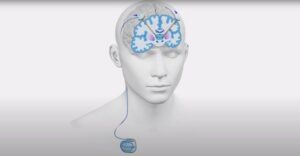Physical Health and Sleep – How They Both Are Connected With Each Other
6 min read
Physical Health and Sleep
The potent relationship of sleep and over wellbeing is not hidden from anyone. Rest lets the body and brain recuperate from nuisance throughout the day and helps to declutter. A good long nap at night warrants cheerfulness, optimism, and readiness when you wake up in the morning.
As revealed by surveys, 70% of Americans are sleep deprived. When you are not taking adequate sleep, you can severely deteriorate your physical and mental health. Chronic Sleep deficiency, when not adjusted, results in psychiatric activities. According to studies, people with long-lasting sleep deprivation have 50%-80% chances of developing cerebral conditions.
Also, when considered, the correlation of sleep deprivation with physical conditions is unfavorable and causes threats to physical safety.
Importance of Responsible Sleep Structure On Overall Wellbeing
A healthy sleep structure is essential to maintain your health and overall wellbeing. This norm is as vital as eating and exercising and offers many benefits for human welfare.
One of the most significant gains of responsible sleep structure includes better efficiency and improved productivity. In addition, sleep is vital for numerous airs of brain function. For example, a study by the Journal of child psychology and psychiatry revealed that a child’s sleeping pattern could directly influence their conduct and performances.
Also, if you compare the behaviors of people who have proper sleep structure with the ones who have a night of insufficient sleep, there will always be a massive difference between their productivity.
One of the studies by a university in the US found that people with reckless sleeping pattern has some facets of brain function similar to intoxication. In contrast, the people who have good and responsible sleep structure possess better problem solving and intellectual skills.
Sleep And Physical Health
Resting and sleeping at night plays an imperative role in promoting better physical health. However, if sleep, not taken properly, it can be detrimental to your health and result in many health risks. This is because the inability to obtain high-quality sleep can interfere with a lot of your bodily process and lower the ability of your body’s defense mechanism against infections and diseases.
Here are some other health risks that might take place due to the scarcity of modest sleeping patterns.
1. Weekend Immunity
Deteriorated sleeping patterns exhaust your immune system. When you are not sleeping sufficiently, your immune system fails to defense against infections, viruses, diseases, etc., that later grow and become chronic.
Sleep during the night peaks your T-cells, cytokines, and other immune system components that lower your risk of chronic medical conditions and help you combat infective diseases.
Studies have revealed that eight hours of sleep at night can be accommodating for you to improve your immune function and helps fight common colds.
2. Trouble With Concentration
Lack of sleep can result in troubles with concentration and other cognitive performances. It takes away your capability of creativeness and negatively affects your ability to adapt to new skills.
A study among internees concluded that interns who work for more than 24 hours had made 36% more blunders than those who had to work for less than 24 hours.
Irregular sleeping structure gives you a hard time remunerating attention, and you are more likely to make blunders in your activities. This glitch affects all. Whether you are a grown-up or a student, you will regret it if you don’t recover from your lousy sleeping schedule.
3. Growth And Development
Intense sleep activates hormones that support physical growth and increase muscle mass. Conversely, children who don’t sleep sufficiently negatively affect their hormonal growth because these hormones mainly produce while sleeping.
When someone consistently has lacks sleep, his growth hormones are repressed, which also affects their puberty. Therefore, no matter you are a child or an adult, night sleep is essential for you.
If you are an adult and sleep for a minimum of eight hours, you will have regulated puberty and fertility. Sleeping also helps fix cells and tissues, and you will have a great time connecting with your partners.
4. High Blood Pressure
People with uneven and irregular sleeping patterns often have high blood pressure that increases the threat of heart diseases. Conversely, sleeping generally reduces blood pressure, decreases the chances of related sleep conditions, and promotes better heart health.
Deficient sleep can also increase the risks for coronary artery calcification that, according to an Assignment Assistance in the UK, is the most critical heart disease predictor and can predict future cardiovascular conditions.
5. Risk For Diabetes
If you don’t know, let me tell you that insulin is a bodily hormone that controls your body sugar, commonly known as glucose level.
If you lack sleep, the deprivation influence how your body responds to insulin. Which then roots the glucose level to rise and put you at high risk for fostering type 2 diabetes.
A study was conducted on a healthy man where the person had to sleep little to no hours for nights and check his diabetic status. As a consequence, the individual was found to have developed prediabetic symptoms that were later settled after a week of increased sleeping time.
6. Weight Gain
Lack of sleep or nap can also result in weight gain—people who have short sleep durations lean to weigh up quickly than those who have sufficient sleep.
It is found that obesity has strong links with poor sleep pattern. In addition, research revealed that 55% of the children and adults who were tested for the same purpose were found to develop obesity. However, sleep directly is not linked to weight gain. Instead, it includes factors like hormones, eating habits, and motivation to work out.
Sleep And Mental Health
There’s no denial of the fact that sleep plays a crucial role in good mental health. If you lack sufficient sleep, you can feel drained and bad-tempered, giving you some long-term hardships and unfavorable psychological health consequences. Such as follows.
1. Anxiety Disorders
Every year almost 20% of adults and 25% of the youngster in the US are victims of anxiety disorders. This is primarily because of the lack of sleep.
When you sleep less, you might undergo anxiety attacks, and this disorder can bring terror and fear among you and create severe long-term consequences for you. The type of anxieties sleep deprivation can get includes:
- Post-traumatic stress disorders
- Phobias
- Panic attacks
- Obsessive-compulsive disorder
The condition’s robust association with a sleeping schedule can be amended just by healthy sleeping patterns that mean if you have stress, fear, or panic too fast, you need to focus on your sleeping hours.
2. Depression
Insomnia or destructive sleeping pattern can develop depression and bring the feeling of sadness to you. According to studies, 90% of the working adult in the US are sleep deprived, due to which they have anger issues and are often hopeless about it.
Depressed patients who continue to have irregular sleeping schedules are likely to become more discouraged and move their motivation level downwards. This consistency results in chronic sleep deficiency, and the individual tends to possess violent behavior that can only worsen with time.
3. Impulsive behavior
Sleep deprivation link up the causes of impulsive behavior and emotional dysregulation, and youngsters are more prone to this turmoil. In addition, studies have found the patterns of imprudent conditions among teenagers and reveal how this can result in prolonged health conditions among them.
Researchers are still investigating how less or no sleep can result in acting spontaneously without thinking and become chronic and compulsive. Some other grounds of impulsive behavior include persistent exposure to violence, history of substance abuse, emotional abuse, etc.
4. Mood Swings
Nothing affects your mood swings more than deteriorated sleeping patterns. Lack of rest and naps disturb your mental abilities, and you feel more disposed to a lousy temperament that can result in severe aggression and violent behavior.
If the deficit lasts long enough, you can develop hallucinations and might end up having suicidal thoughts that you won’t be able to cope with.
If you are baffled by your sleep schedules and want to overcome them, try sleeping in a dark, quiet, and cozy room. If this doesn’t work out, avoid caffeine and don’t take heavy meals two hours before bedtime.







